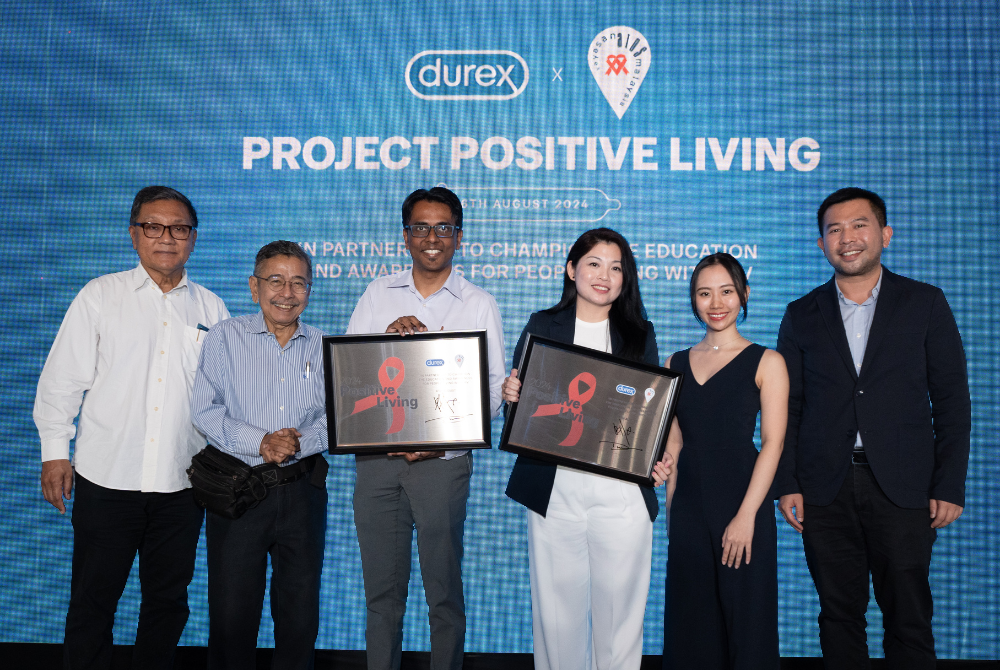Survey reveals concerning gaps in safe sex practices
Half of Malaysians (51.77 per cent) did not use condoms during their first sexual experience.

In a move to advance public health, the 2024 Durex Global Sex Survey reveals concerning gaps in safe sex practices among Malaysians.
With 29,500 respondents aged 18 and above from 36 countries, the survey highlights the urgent need for better sexual education and awareness in Malaysia.
The survey reveals one of the most alarming findings where over half of Malaysians (51.77 per cent) did not use condoms during their first sexual experience.
Additionally, only 44 per cent of those who used condoms initially continued to use them in future encounters. This lack of consistent protection raises significant risks for sexually transmitted infections (STIs) and unintended pregnancies.
The survey also highlighted misconceptions about sexual health among Malaysians. For example, 31.62 per cent believe they can't get an STI without penetrative sex, and 33.88 per cent are unsure about this fact.
Moreover, only 20.36 per cent know that women can become pregnant during their period. These gaps in knowledge point to the need for better sexual education to correct these misunderstandings and encourage safe sex practices.
Reckitt head of marketing, OTC & Intimate Well-being for Malaysia and Singapore Jerome Goh said that condoms are crucial not only for contraception but also for preventing STIs and HIV.
"With seven in 10 people being sexually active, it is crucial to address the realities of sexual behavior. Condoms are not just contraceptives; they are lifesavers.
"They are the first line of defense against a host of sexually transmitted infections, including HIV. Yet, misconceptions and misinformation continue to hinder their widespread use," he said.
Pornography and the level of trust in partners' sexual health are key factors influencing condom use. The survey revealed that many people rely on pornography and internet searches for sexual information, even though these sources are often unreliable.
Nearly half of the respondents see watching porn as normal, but those aged 18 to 24 noted that condoms are rarely shown in porn, which might create unrealistic expectations and lessen the perceived need for protection.
Additionally, the survey highlighted that 59.12 per cent of Malaysians either believe or are unsure that condoms are unnecessary if they trust their partner. This misplaced trust can lead to unsafe sexual practices and a higher risk of STIs.

In response to recent findings, Durex Malaysia and the Malaysian AIDS Foundation (MAF) have introduced the Positive Living Programme at Rumah Tangsi.
This initiative offers comprehensive support for newly diagnosed People Living with HIV (PLHIV) and aims to raise sexual health awareness among young Malaysians.
Funded by a multi-year grant from Durex Malaysia and managed by the PT Foundation, the programme provides psychological, medical, social, and economic assistance to improve the quality of life for newly diagnosed individuals.
Malaysian AIDS Council (MAC) President and Trustee of the Malaysian AIDS Foundation Associate Professor Dr Raja Iskandar Shah Raja Azwa expressed his gratitude towards Durex Malaysia and highlighted the critical need for support systems for newly diagnosed PLHIV.
"We are grateful for Durex's support in this critical area. Newly diagnosed PLHIV faces significant psychological, social, medical, and economic challenges. The initial shock of diagnosis often leads to anxiety, depression, and concerns about stigma and discrimination.
"These individuals may struggle with self-esteem and fear of ostracism by family, friends, and the broader community, while workplace discrimination and healthcare stigma further complicate their situation," he said.
The launch of the Positive Living Programme aims to enhance awareness and support for safe sex practices.
MAF and Durex are working together to provide Malaysians with accurate sexual health information, reduce the stigma around condom use, and support people living with HIV to create an inclusive society with accessible care and support.










